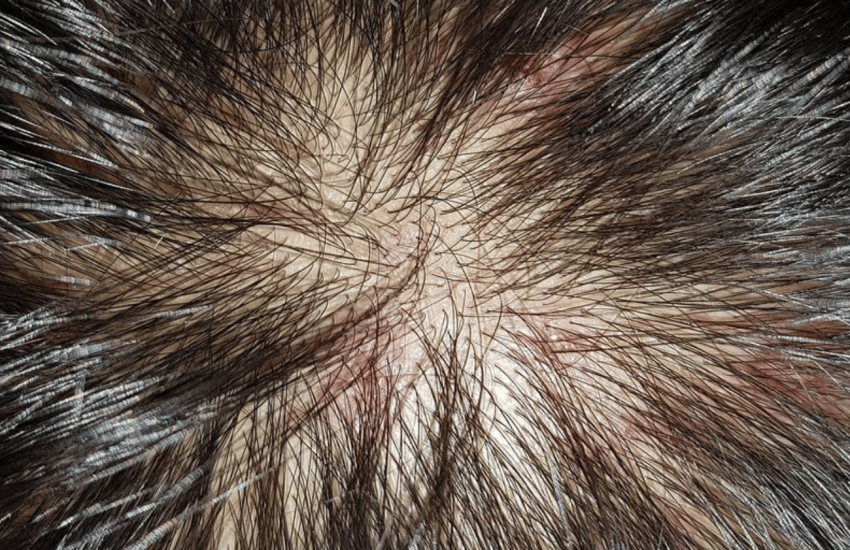Kidney Yin and Yang Food Guide: Balance Your Energy Naturally
Meta Description: Discover kidney yin and yang foods to restore energy balance naturally. Complete TCM nutrition guide with food lists, recipes, and health tips.
Introduction: Understanding Your Kidney Energy Through Food
Have you ever wondered why some days you feel energized and vibrant, while on others you’re exhausted despite getting enough sleep? According to Traditional Chinese Medicine (TCM), the answer might lie in the balance of your kidney energy—specifically, the harmony between kidney yin and yang.
In TCM philosophy, the kidneys are far more than just organs that filter waste. They’re considered the foundation of your body’s entire energy system, storing your vital life force and governing everything from your reproductive health to your ability to handle stress. When your kidney yin and yang are balanced, you experience optimal vitality, mental clarity, and physical resilience. But when they fall out of harmony, you might face fatigue, anxiety, hormonal imbalances, or weakened immunity.
The good news? You can naturally restore this balance through strategic food choices. This comprehensive guide will walk you through the principles of kidney yin and yang, help you identify which foods support each aspect, and show you how to create a personalized nutrition plan that honors your body’s unique needs.
What Are Kidney Yin and Yang?
The Foundation of TCM Energy Theory
Traditional Chinese Medicine views health through the lens of balance. Within this framework, yin and yang represent complementary forces that must work together harmoniously. Think of them as two sides of the same coin—neither is better than the other, and both are essential for optimal health.
Kidney Yin represents the cooling, moistening, and nourishing aspects of kidney energy. It’s responsible for:
- Maintaining proper hydration and body fluids
- Supporting hormonal balance and reproductive health
- Cooling internal heat and inflammation
- Nourishing bones, marrow, and brain function
- Promoting restful sleep and calm mental states
Kidney Yang represents the warming, activating, and energizing aspects. It governs:
- Metabolic function and body temperature regulation
- Physical vitality and stamina
- Digestive fire and nutrient absorption
- Immune system strength
- Mental drive and motivation
Signs of Imbalance
Kidney Yin Deficiency Symptoms:
- Night sweats and hot flashes
- Dry skin, mouth, and throat
- Lower back pain or weakness
- Insomnia or restless sleep
- Anxiety and irritability
- Ringing in the ears (tinnitus)
- Premature graying of hair
- Infertility or hormonal issues
Kidney Yang Deficiency Symptoms:
- Chronic fatigue and low energy
- Feeling cold, especially in extremities
- Frequent urination, particularly at night
- Lower back soreness and weak knees
- Digestive sluggishness
- Low libido
- Water retention and puffiness
- Mental fog and poor concentration
Understanding these symptoms can help you identify which aspect needs more support through dietary choices.
Kidney Yin Foods: Nourish and Cool Your System
The Best Foods for Building Kidney Yin
Kidney yin foods are typically cooling, moistening, and nutrient-dense. They help replenish your body’s fluid reserves and calm excess heat. Here’s your comprehensive list:
Vegetables and Legumes:
- Black beans and kidney beans
- String beans and snow peas
- Asparagus and artichokes
- Seaweed and kelp
- Spinach and chard
- Mushrooms (especially shiitake and maitake)
- Yams and sweet potatoes
Fruits:
- Blackberries and blueberries
- Mulberries and raspberries
- Watermelon and cantaloupe
- Pears and apples
- Grapes and pomegranates
- Coconut and coconut water
Proteins:
- Duck and pork
- Fish (especially sardines, mackerel, and salmon)
- Oysters and clams
- Eggs (particularly egg yolk)
- Bone broth and bone marrow
Grains and Seeds:
- Black sesame seeds
- Millet and barley
- Wild rice and black rice
- Flaxseeds
Other Yin-Supporting Foods:
- Royal jelly and honey
- Nettle tea and chamomile
- Aloe vera juice
- Tofu and tempeh
How to Incorporate Yin Foods Into Your Diet
Start your day with a nourishing breakfast that includes yin-building ingredients. Try a smoothie with berries, coconut water, and flaxseeds, or enjoy congee made with black rice and topped with sesame seeds.
For lunch and dinner, aim to include at least one yin food at each meal. A simple approach is to build your plate around steamed vegetables, high-quality protein sources like fish or duck, and whole grains. Cooking methods matter too—steaming, poaching, and slow-cooking preserve the moistening qualities of yin foods better than roasting or frying.
Kidney Yang Foods: Energize and Warm Your Body
The Best Foods for Building Kidney Yang
Yang foods are warming, energizing, and help boost your metabolic fire. They’re essential for maintaining physical vitality and mental drive.
Warming Vegetables:
- Leeks and scallions
- Onions and garlic
- Ginger (fresh and dried)
- Winter squash and pumpkin
- Root vegetables (carrots, parsnips, turnips)
- Fennel
Proteins:
- Lamb and venison
- Chicken and turkey
- Shrimp and prawns
- Anchovies
- Walnuts and chestnuts
Warming Spices and Herbs:
- Cinnamon and cloves
- Black pepper and cayenne
- Cardamom and nutmeg
- Fenugreek seeds
- Turmeric and cumin
Yang-Supporting Grains and Legumes:
- Oats and quinoa
- Adzuki beans
- Lentils
Beverages and Supplements:
- Ginger tea and chai
- Bone broth
- Korean ginseng tea
- Maca powder
- Green tea (in moderation)
Practical Yang Food Integration
Begin your morning with warming foods to kindle your digestive fire. A bowl of oatmeal with cinnamon, walnuts, and a drizzle of honey provides sustained energy throughout the day. Alternatively, enjoy scrambled eggs with sautéed leeks and ginger.
Throughout the day, incorporate warming spices into your meals. Add fresh ginger to stir-fries, sprinkle cinnamon on roasted vegetables, or enjoy a cup of chai tea in the afternoon. When preparing proteins, opt for cooking methods that add warmth—grilling, roasting, and sautéing are excellent choices.
Creating Balance: The Yin-Yang Diet for Kidney Health
Assessing Your Individual Needs
The key to kidney energy support lies in understanding your unique constitution. Most people don’t have a pure yin or yang deficiency—instead, they may lean toward one while needing support for both.
Consider your symptoms, lifestyle, and climate when planning your diet. If you live in a hot climate or experience menopausal hot flashes, you’ll need more yin foods. Conversely, if you’re in a cold environment or struggle with chronic fatigue, emphasize yang foods.
The 70-30 Principle
A practical approach is the 70-30 rule: consume 70% of your foods from the category that addresses your primary deficiency, and 30% from the opposite category to maintain overall balance. For example, someone with kidney yin deficiency would focus primarily on yin foods while still including some warming elements to support digestion.
Seasonal Eating for Kidney Health
Traditional Chinese medicine kidney diet principles emphasize eating with the seasons:
Winter (Peak Kidney Season): Focus on building both yin and yang reserves. This is the time to emphasize bone broths, root vegetables, black beans, and warming soups. Think slow-cooked stews that nourish deeply.
Spring: Transition toward lighter foods while still supporting kidney energy. Include asparagus, peas, and fresh greens alongside your kidney-nourishing foods.
Summer: Emphasize cooling yin foods to balance external heat. Incorporate more fruits, cooling vegetables, and light proteins.
Fall: Begin preparing for winter by gradually introducing more warming foods. This is an excellent time for squashes, sweet potatoes, and transitional dishes.
TCM Kidney Food Therapy: Advanced Strategies
Food Combinations That Enhance Kidney Energy
Certain food pairings create synergistic effects for kidney health:
Black Bean and Walnut Soup: Combines yin-nourishing black beans with yang-supporting walnuts for balanced kidney support.
Salmon with Ginger: Pairs yin-rich fish with warming ginger to support both aspects while aiding digestion.
Sweet Potato and Cinnamon: Balances the nourishing yin quality of sweet potatoes with the warming effect of cinnamon.
Bone Broth with Seaweed: Creates a mineral-rich tonic that supports both yin (from seaweed’s moistening properties) and yang (from bone broth’s warming nature).
Preparation Methods Matter
How you prepare food affects its energetic properties:
Steaming and Poaching: Preserve yin qualities, keeping foods moist and gentle on digestion.
Slow-Cooking and Braising: Build yang energy while making nutrients more bioavailable.
Raw Foods: Extremely yin and cooling—use sparingly if you have yang deficiency.
Roasting and Grilling: Add yang properties but can deplete yin if overused.
Natural Kidney Health Foods Beyond Yin and Yang
Universal Kidney Supporters
Some foods benefit kidney health regardless of yin-yang constitution:
Berries: Rich in antioxidants that protect kidney tissue from oxidative stress. Blueberries, cranberries, and strawberries all support kidney function while providing valuable nutrients.
Leafy Greens: Loaded with vitamins A, C, and K, plus minerals that support overall kidney health. They’re particularly valuable for maintaining healthy blood pressure.
Omega-3 Rich Fish: Support anti-inflammatory processes and cardiovascular health, which directly impacts kidney function.
Garlic and Onions: Contain sulfur compounds that support detoxification pathways and reduce inflammation.
Cauliflower and Cabbage: Provide fiber and compounds that support the body’s natural cleansing processes.
Foods to Minimize for Optimal Kidney Energy
While focusing on what to eat, it’s equally important to understand what depletes kidney energy:
Excessive Salt: While some salt is necessary, too much strains kidney function and depletes yin.
Refined Sugars: Create inflammation and tax both kidney yin and yang over time.
Excessive Caffeine: Can deplete kidney yin, leading to anxiety, insomnia, and adrenal stress.
Processed Foods: Lack the vital energy and nutrients needed to support kidney health.
Cold, Raw Foods in Excess: Can weaken digestive fire and yang energy, particularly in those with yang deficiency.
Lifestyle Practices to Support Your Yin-Yang Balance
Beyond Nutrition: Holistic Kidney Care
Diet is foundational, but these lifestyle practices amplify the benefits of your yin yang nutrition guide:
Adequate Sleep: The hours between 11 PM and 3 AM are when kidney energy naturally regenerates. Prioritize sleep during these hours.
Stress Management: Chronic stress depletes kidney energy, particularly yin. Practice meditation, deep breathing, or gentle yoga.
Moderate Exercise: Tai chi, qigong, and walking support kidney yang without depleting yin. Avoid excessive high-intensity exercise if you’re already deficient.
Stay Hydrated: Proper hydration supports kidney yin. Drink room-temperature water throughout the day rather than ice-cold beverages.
Protect Your Lower Back: Keep your kidney area warm, especially in cold weather. In TCM, the kidneys are considered vulnerable to cold invasion.
When to Seek Professional Guidance
While dietary changes can significantly impact your kidney energy, certain situations warrant professional TCM consultation:
- Persistent or severe symptoms
- Kidney disease or dysfunction
- Pregnancy or trying to conceive
- Taking medications that affect kidney function
- Undergoing cancer treatment
A qualified TCM practitioner can provide personalized herbal formulas and acupuncture treatments that complement your dietary approach.
Sample Meal Plans for Kidney Balance
For Kidney Yin Deficiency
Breakfast: Black sesame and blueberry smoothie with almond milk and honey
Lunch: Steamed fish with asparagus and wild rice, side of seaweed salad
Dinner: Duck breast with roasted root vegetables and string beans
Snacks: Pear slices, coconut water, handful of mulberries
For Kidney Yang Deficiency
Breakfast: Oatmeal with walnuts, cinnamon, and dried ginger
Lunch: Chicken soup with leeks, carrots, and fennel
Dinner: Lamb curry with root vegetables and quinoa
Snacks: Chai tea, roasted chestnuts, dates
For Balanced Support
Breakfast: Scrambled eggs with sautéed mushrooms and scallions
Lunch: Black bean and sweet potato bowl with steamed greens
Dinner: Salmon with ginger, roasted winter squash, and barley
Snacks: Bone broth, apple with almond butter, herbal tea
Conclusion: Your Path to Balanced Kidney Energy
Achieving harmony between kidney yin and yang isn’t about perfection—it’s about making consistent, informed choices that support your body’s unique needs. By incorporating the right balance of kidney yin foods and kidney yang foods into your daily routine, you’re investing in your long-term vitality, hormonal balance, and overall wellness.



